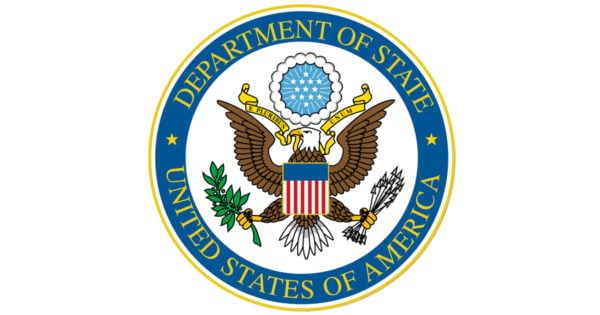
A newly released State Department report says that no formal negotiations took place between the People’s Republic of China and the Tibetan side last year, as has been the case every year since 2010, when China walked away from the dialogue process.
The Biden administration’s second Tibet Negotiations Report explains the need for a negotiated solution on Tibet and reiterates the American policy of supporting negotiations, saying that the United States “believes the PRC government must address these concerns to create conditions for a sustainable settlement, which is essential to the long-term stability of the region.”
The International Campaign for Tibet said: “Under the Tibetan Policy Act of 2002, the President and Secretary of State must encourage the government of the People’s Republic of China to enter into a dialogue with the Dalai Lama or his representatives, leading to a negotiated agreement on Tibet. Subsequently, the Tibetan Policy and Support Act of 2020 strengthened this by asserting that the dialogue should be ‘without pre-conditions,’ and that the administration ‘should coordinate with other governments in multilateral efforts toward this goal.’
“While this second report mentions some activities undertaken to draw attention to Tibet, ICT believes the administration must fully execute the mandate of these laws and bring to bear all possible avenues of diplomacy.”
American efforts
The report outlines the activities undertaken by senior US officials from May 1, 2021 to April 30, 2022 to encourage dialogue on Tibet.
It says senior US officials regularly “called public attention to China’s abuses of the human rights of Tibetans, including their right to freedom of religion or belief.”
Among activities listed in this reporting period are the appointment of US Special Coordinator for Tibetan Issues Uzra Zeya and her meetings with Central Tibetan Administration officials as well as with the International Campaign for Tibet and other Tibet-related entities.
Greater efforts needed
However, the report does not refer to President Joe Biden and Secretary of State Antony Blinken raising Tibet with their Chinese counterparts.
The White House said in a statement that during his virtual meeting with Chinese President Xi Jinping on Nov. 15, 2021, “President Biden raised concerns about the PRC’s practices in Xinjiang, Tibet, and Hong Kong, as well as human rights more broadly.” Similarly, the State Department had issued a statement on Oct. 31, 2021 saying Blinken raised Tibet with State Councilor and Foreign Minister Wang Yi in Rome.
With more than a decade having passed since the last round of negotiations, it is becoming clear that fulfilling America’s stated policy objective of reviving the dialogue process may require new strategies and a greater emphasis on Tibet by the American government in its dealings with the PRC.
Tibet’s status
The report states that America “remains concerned by the lack of meaningful autonomy for Tibetans within China, ongoing abuses of the human rights of Tibetans in China, and efforts by PRC authorities to eliminate the distinct religious, linguistic, and cultural identity of Tibetans.” Given the gravity of the situation inside Tibet, bringing China back to the negotiating table must be a top priority in China-US relations.
The report also includes language describing Tibet as a part of the PRC. Sens. Patrick Leahy, D-Vt., and Marco Rubio, R-Fla., had previously applauded the removal of this language from the 2021 State Department Human Rights report, describing the language as “gratuitous.”
“We should not allow the CCP to define the terms of our interactions with them, or with the people living in the PRC, nor should we uncritically accept how the CCP characterizes the facts on the ground, past or present,” the senators wrote at the time.
Background on the Negotiations Report
In 2003, President George W. Bush delivered the first presidential report to Congress on the status of Tibet negotiations. In it, he maintained that lack of resolution of the Tibetan problem will be a stumbling block to fuller political and economic engagement between the United States and China. Subsequently, he delegated to the Secretary of State the submission of such annual reports.
Read the Biden administration’s second Tibet Negotiations Report »

